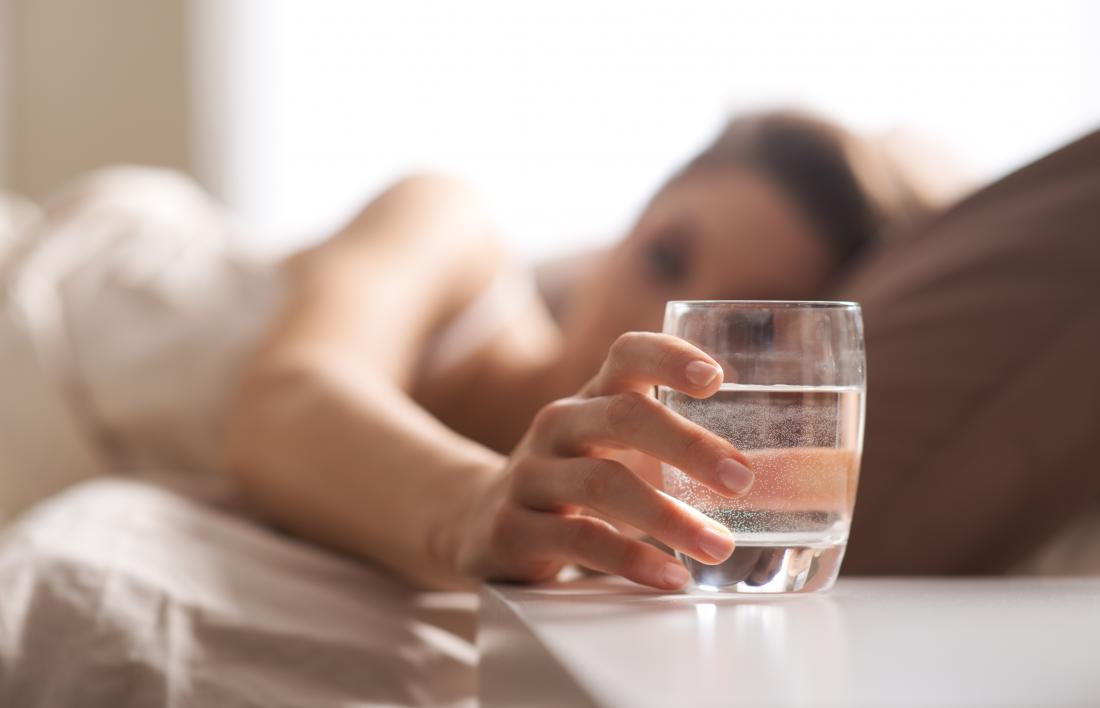The Effects of Alcohol on Your Sleep
Have you made drinking alcohol an evening ritual that you cannot do without? Consuming alcohol can have strong adverse effects on the quality and quantity of your sleep.
Having a drink or more before bedtime can negatively impact your sleep. And not many people are aware of the effects of alcohol on the quality and quantity of sleep. In a study1 carried out in 2009, 58% of the 2,000 participants did not know that drinking alcohol had negative effects on the quality of sleep.
Alcohol stimulates the release of endorphins (feel-good chemicals) in the brain. These chemicals are responsible for increased confidence, extroversion, and more vocal behavior. But after some time alcohol begins to sedate, and a small amount can make you fall asleep. The brain absorbs the alcohol and it takes effect immediately. How long the effect lasts depends on how much you consume.
Alcohol has been used to induce sleep for many years, and a lot of people continue to use alcohol to make them fall asleep, thereby having to deal with an unfulfilling sleep. A while ago physicians recommended “nightcaps” for people suffering from difficulty or inability to sleep. Using alcohol to induce sleep is not healthy because it affects the stages of sleep, makes you sleep more lightly and wake abruptly from time to time. A chronic alcoholic who depends on alcohol to get sleep may find it difficult to achieve this with low doses. S/he may have to take alcohol in very high amounts before s/he can sleep.
Alcohol and how it affects the sleep cycle
Below are the four stages of the sleep cycle:
- N1: This accounts for 4 to 5 percent of your sleep, and is the period of transition from being awake to being asleep.
- N2: This is the stage where your heart rate and breathing pattern start slowing down.
- N3: This is the deep sleep stage where your brain and body are going through restoration.
- REM: At this stage some segments of the brain are most active. This is where you have dreams filled with action. The REM stage is where the muscles are paralyzed so that you do not act out your dreams.
All stages are important. Even sleep scientists do not put preference on any stages. Therefore you cannot place more value on one stage over another. It is important that the quality of your sleep is not compromised. You have to go through all the stages to get quality sleep.
How alcohol affects sleep
- It affects the quality
If you take alcohol in the evening and sleep through the night, you may not get the rested and refreshed feeling that you are supposed to get when you wake up. Alcohol prevents deep sleep and suppresses REM.
- It interferes with sleep time
Alcohol causes frequent abrupt wakening and sometimes makes it difficult to fall asleep.
- It causes sleep disorders
Some disorders2, such as sleep apnea, worsen after consuming alcohol. Sleep apnea is a sleep disorder characterized by heavy snoring and abnormal breathing patterns (intermittent pauses) while sleeping. Alcohol consumption before sleeping can make the airway narrower which heightens the inability to breathe during sleep.
Is it possible to prevent the impact of alcohol on sleep?
Getting alcohol out of the body takes time, and if you do not want alcohol to interfere with the quality of sleep, you need to leave enough time for the alcohol to get out of your body. You can take alcohol at least three hours before bedtime. This will help reduce the effects of alcohol on your sleep. If you do not intend to let go of alcohol, you can make a conscious effort to monitor how much alcohol you consume in one drink. Try to drink drinks with low alcoholic content hours before you go to bed so that you can enjoy a drink without sacrificing sleep.
Tips for getting good sleep without alcohol
Are you used to inducing sleep with alcohol and scared that giving up alcohol will lead to difficulty sleeping? Check out some of these sleeping solutions and tips to sleep successfully without alcohol.
- Consistent sleep/wake time
Maintaining a consistent sleep/wake time can guarantee a good sleep. Have a set time for going to bed and set an alarm to get up. Include weekends, and you will find your body adjusting to this routine.
- Exercise
Exercise in the evenings, and you will find it easier to go to sleep. Exercising increases the temperature of your body, and by the time you are ready to sleep the temperature starts dropping which makes it easier to fall asleep.
- Avoid caffeine
Caffeine is a very effective stimulant that keeps you awake and active. Avoid taking any foods or beverages that contain caffeine from the afternoon on. Drinking water will help you maintain a natural sleep cycle.
Conclusion
Although a lot of people see alcohol as a simple way of inducing sleep, it is not. Alcohol makes your sleep unhealthy and reduces its quality. If you want to sleep better, avoid the booze.
Referances:
1. BBC news: http://news.bbc.co.uk/2/hi/health/8208212.stm
2. National sleep foundation: https://www.sleepfoundation.org/sleep-topics/how-alcohol-affects-sleep


